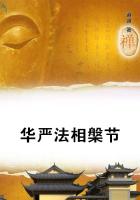I must now return to Miss Alethea Pontifex, of whom I have said perhaps too little hitherto, considering how great her influence upon my hero's destiny proved to be.
On the death of her father, which happened when she was about thirty-two years old, she parted company with her sisters, between whom and herself there had been little sympathy, and came up to London. She was determined, so she said, to make the rest of her life as happy as she could, and she had clearer ideas about the best way of setting to work to do this than women, or indeed men, generally have.
Her fortune consisted, as I have said, of 5000 pounds, which had come to her by her mother's marriage settlements, and 15,000 pounds left her by her father, over both which sums she had now absolute control. These brought her in about 900 pounds a year, and the money being invested in none but the soundest securities, she had no anxiety about her income. She meant to be rich, so she formed a scheme of expenditure which involved an annual outlay of about 500 pounds, and determined to put the rest by. "If I do this," she said laughingly, "I shall probably just succeed in living comfortably within my income." In accordance with this scheme she took unfurnished apartments in a house in Gower Street, of which the lower floors were let out as offices. John Pontifex tried to get her to take a house to herself, but Alethea told him to mind his own business so plainly that he had to beat a retreat. She had never liked him, and from that time dropped him almost entirely.
Without going much into society she yet became acquainted with most of the men and women who had attained a position in the literary, artistic and scientific worlds, and it was singular how highly her opinion was valued in spite of her never having attempted in any way to distinguish herself. She could have written if she had chosen, but she enjoyed seeing others write and encouraging them better than taking a more active part herself. Perhaps literary people liked her all the better because she did not write.
I, as she very well knew, had always been devoted to her, and she might have had a score of other admirers if she had liked, but she had discouraged them all, and railed at matrimony as women seldom do unless they have a comfortable income of their own. She by no means, however, railed at man as she railed at matrimony, and though living after a fashion in which even the most censorious could find nothing to complain of, as far as she properly could she defended those of her own *** whom the world condemned most severely.
In religion she was, I should think, as nearly a free-thinker as anyone could be whose mind seldom turned upon the subject. She went to church, but disliked equally those who aired either religion or irreligion. I remember once hearing her press a late well-known philosopher to write a novel instead of pursuing his attacks upon religion. The philosopher did not much like this, and dilated upon the importance of showing people the folly of much that they pretended to believe. She smiled and said demurely, "Have they not Moses and the prophets? Let them hear them." But she would say a wicked thing quietly on her own account sometimes, and called my attention once to a note in her prayer-book which gave account of the walk to Emmaus with the two disciples, and how Christ had said to them "O fools and slow of heart to believe ALL that the prophets have spoken"--the "all" being printed in small capitals.
Though scarcely on terms with her brother John, she had kept up closer relations with Theobald and his family, and had paid a few days' visit to Battersby once in every two years or so. Alethea had always tried to like Theobald and join forces with him as much as she could (for they two were the hares of the family, the rest being all hounds), but it was no use. I believe her chief reason for maintaining relations with her brother was that she might keep an eye on his children and give them a lift if they proved nice.
When Miss Pontifex had come down to Battersby in old times the children had not been beaten, and their lessons had been made lighter. She easily saw that they were overworked and unhappy, but she could hardly guess how all-reaching was the regime under which they lived. She knew she could not interfere effectually then, and wisely forbore to make too many enquiries. Her time, if ever it was to come, would be when the children were no longer living under the same roof as their parents. It ended in her ****** up her mind to have nothing to do with either Joey or Charlotte, but to see so much of Ernest as should enable her to form an opinion about his disposition and abilities.














